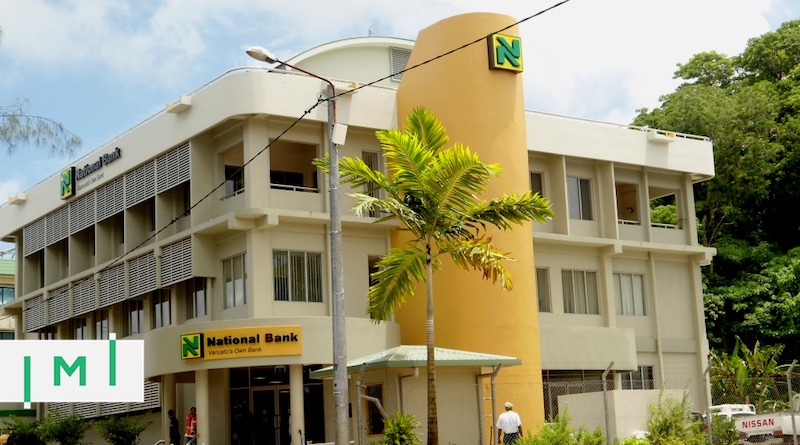Vanuatu CBI Revenue Drop in 2021 Likely Related to Correspondent Bank Relationship Troubles
“Revenue from the honorary citizenship programs , the Vanuatu Development Support Program (VDSP), and the Vanuatu Contribution Program (VCP), the main components of non-tax revenue, amongst other fees and charges, totaled VT 5,652.5 million in the first six months of 2021,” writes Vanuatu’s Department of Treasury and Finance in its economic report for the first half of this year.
The revenues recorded in the first half of 2021 represent a 21% decline on the first six months of 2020. That reduction, says the Department, is owed to the pandemic, which did not begin affecting receipts until halfway through the first half of last year.
But the pandemic alone cannot explain the drop-off in revenues; the second half of 2020, during which the pandemic was at least as disruptive as in the first half of this year, saw higher revenues than even the first half of of the same year. In fact, Vanuatu set a new all-time high for CBI-related revenues in 2020 and even displaced VAT as the government's single largest source of revenue.
According to Ronald Warsal, chairman of Vanuatu's Citizenship Commission, interest has not abated: Warsal told the Vanuatu Daily Post last month that applications were still coming in at a rate of about 100 a month, on par with the first half of last year. "There is no decrease," he said last month with reference to application volume so far in 2021.
Relationship problems
If application volumes remain steady, to what does the chairman attribute the decline in revenues? Speaking to the Daily Post, Warsal said the shortfall was related to "issues" with the National Bank of Vanuatu (NBV) that had caused severe delays in citizenship payments. The chairman did not elaborate on the nature of those issues, but they are likely related to that financial institutions loss of certain key correspondent banking relationships (the bane of CBI jurisdictions from Port Vila to Basseterre):
In March this year, according to an NBV statement, the National Australia Bank had ended its correspondent bank relationship with the NBV. This, said the bank, would make it impossible for NBV to open new USD-accounts, and also potentially remove its ability to provide USD to clients going forward.
Prior to August this year, the National Bank of Vanuatu was the sole financial institution in the country permitted to receive CBI-funds. Last month, however, the ni-Vanuatu government took a series of legislative steps to widen the range of local banks that could accept payments from CBI applicants to also include a number of private banks. It further began formally permitting applicants to pay in currencies other than the US dollar; prospective citizens are now free to pay also in New Zealand and Australian Dollars, British Pounds, and Japanese Yen. The diversification in both currencies accepted for CBI-payments and the banks permitted to receive them are likely a direct, mitigative response to the loss of the NAB relationship.
Warsal, in any case, expressed a sanguine attitude regarding CBI-receipts:
“Although funds are being delayed, they will pick up. Eventually, we will reach the target by the end of the year.”
Christian Henrik Nesheim is the founder and editor of Investment Migration Insider, the #1 magazine - online or offline - for residency and citizenship by investment. He is an internationally recognized expert, speaker, documentary producer, and writer on the subject of investment migration, whose work is cited in the Economist, Bloomberg, Fortune, Forbes, Newsweek, and Business Insider. Norwegian by birth, Christian has spent the last 16 years in the United States, China, Spain, and Portugal.



